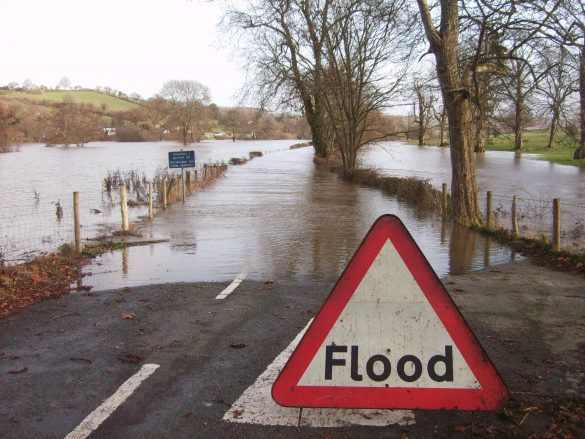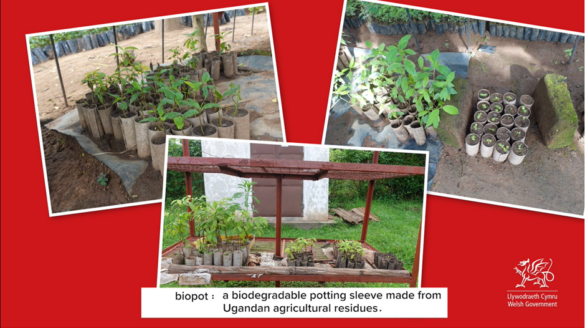The Wellbeing of Future Generations (Wales) Act 2015
Wales is a country that is part of the United Kingdom and the island of Great Britain. In 1998, as Wales became a devolved Government, it incorporated the concept of sustainable development into it’s founding laws; one of the first places in the world to do so. Progress has continued to deliver this vision, with landmark legislation – the Wellbeing of Future Generations (Wales) Act 2015.
Three key instruments enable Wales to develop sustainably:
• A clear idea of aims and key guiding principles.
• A clear picture of the natural resources, the risks they face and the opportunities they provide.
• An efficient process that ensures the right development is located in the right place to make it happen.
In 2011 the Welsh Government committed to legislate to make sustainable development the core principle that drives public bodies in Wales and establish a new statutory Future Generations Commissioner for Wales. Over a four-year period, stakeholders, businesses and politicians were involved in an exercise to agree a new legal framework for sustainable development in Wales. This national conversation exercise called “The Wales We Want” mirrored the “World we Want” exercise conducted by the United Nations.
The Well-being of Future Generations (Wales) Act 2015, passed on 29th April 2015, was the outcome of this process and demonstrates the commitment of the regional government to implementing the SDGs in the Welsh context. The Act contains seven long-term well-being goals. In putting these goals into law, the Act aligns all public body efforts to ensuring the delivery of economic, social, environmental and cultural well-being. It makes sustainable development the central organising principle of the government. The seven goals are:
Goal 1 -A prosperous Wales
Goal 2 – A resilient Wales
Goal 3 – A healthier Wales
Goal 4 – A more equal Wales
Goal 5 -A Wales of cohesive communities
Goal 6 – A Wales of vibrant culture and a thriving Welsh language
Goal 7 -A globally responsibly Wales
How does the law work?
The primary legislation embeds sustainable development and strengthens the framework for climate change action through the application of the ecosystems approach and an innovative legal requirement for carbon budgeting.
The law also establishes a sustainable development principle to drive transformational change in the decisions of public bodies, and provides a blueprint for action in the private sector. Over 350 organisations are signed up to a Sustainable Development Charter.
Welsh Ministers are required to publish national indicators to measure progress towards the well-being goals. They are also required to set milestones in relation to those indicators. For each financial year, the Welsh Ministers must publish a progress report that references the national indicators and the correspondent milestones. The Auditor General for Wales must also examine the compliance of public bodies with the Act.
Annual budgets are structured in more a integrated way to reflect the need for policy to be developed and implemented across all areas of government.
In the 12 months after a general election Welsh Ministers must publish a report containing future trends in the economic, social, environmental and cultural well-being of Wales and any related analytical data and information. The report needs to take into account any action taken by the UN in relation to the SDGs and assess how that action can have an impact on Wales.
Supporting legislation
The Environment (Wales) Act 2016 puts in place legislation to plan and manage Wales’ resources in a sustainable and joined-up way. In doing so, it sets out requirements to manage, use and enhance Wales’ natural resources sustainably, embracing the ecosystem approach from the UN Convention on Biological Diversity which is essential to ensuring the resilience of ecosystems and tackling climate change. It also establishes the legal framework for not only statutory emission reduction targets, but also carbon budgeting towards the goal of at least an 80% reduction by 2050.
The Planning (Wales) Act 2015 modernises Wales’ planning process with sustainable development at its centre, ensuring that planning decisions consider social, economic and environmental aspects. This legislation demonstrates how the key international work streams covering the UN Sustainable Development Goals, UN Framework Convention on Climate Change and the UN Convention on Biological Diversity can be integrated at the subnational level to drive real change.
The legislation is also already gaining international recognition. The UN has stated that: “The Wales Future Generations Act captures the spirit and essence of two decades of United Nations work in the area of sustainable development and serves as a model for other regions and countries… We hope that what Wales is doing today the world will do tomorrow. Action, more than words, is the hope for our current and future generations.”
Initial progress
Some highlights from the 2018 Well-being of Wales report against the seven goals and 46 indicators include:
- Long term increases in life expectancy appear to be slowing.
- There has been good progress over the medium term in areas such as breastfeeding and dental health, but obesity in children remains a challenge, and increased in the last year.
- Gender pay gap at lowest level on record in Wales, but quality of employment still less for women
- Greenhouse gas emissions increased in 2016, but longer term trend of reductions
- Renewable energy generation continues to increase, but natural resources are being depleted faster than they can be replenished.
It is stressed that some of the year-on-year changes may not reflect longer-term trends.
The Future Generation’s Commissioner for Wales’ first report highlights noted that “In the early years of implementation, it has become obvious that there is a long journey ahead to change the culture of organisations and decision-making in Wales. Contributing to this challenge, there is a myriad
of existing policies, guidance, budget allocations and performance indicators which do not embed the new requirements of the Act.” This insight is important for other entities as they begin their own journeys into implementing the SDGs.






